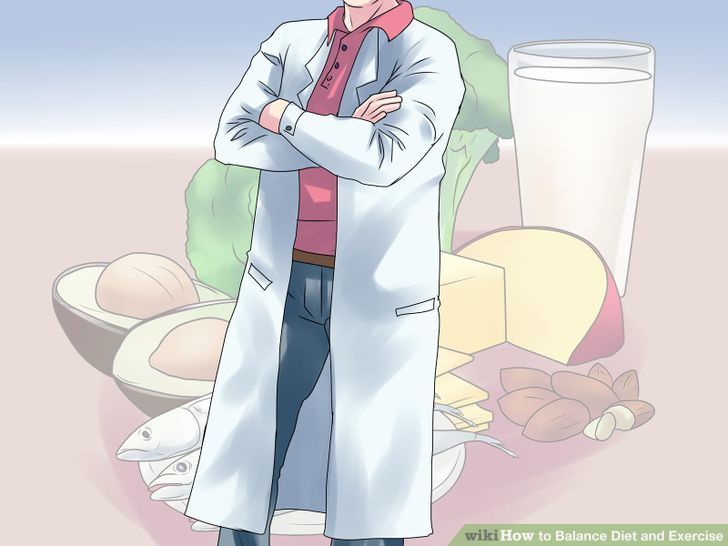How to Balance Diet and Exercise
The key to healthy, lasting weight loss is finding a balance between diet and exercise. A healthy diet provides your body with plenty of nutrients and protein, and limits sugar, fat, and cholesterol. It will give you the necessary fuel to maintain a regular and comprehensive exercise regimen for total fitness. Here are some tips for how to balance diet and exercise.
1 Enlist the help of professionals.
A nutritionist can design a diet plan that meets your health needs. A personal trainer will keep you motivated and help you exercise all parts of your body.
A nutritionist will consider any pre-existing health conditions, your age and weight when designing a diet plan for you. He can also teach you what foods to avoid and how to limit sugar, fat and cholesterol.
Personal trainers are available at most public gyms and can design a regular exercise program that includes equal amounts of cardiovascular and aerobic exercise. A trainer will also provide encouragement and help you avoid cheating or shortening workouts.
2 Follow the USDA guidelines for a balanced diet.
While your specific dietary needs may vary, the USDA Food Pyramid is the best guide for consuming the recommended daily amounts of whole grains, proteins, dairy, fruit and vegetables. Create your diet around these guidelines and try to consume at least the minimum number of daily servings. It’s important to reduce calories in small, gradual amounts in several areas of your diet instead of cutting one food group out completely. This gradual change will keep your metabolism active and keep your energy level up for daily exercise.
3 Eat several small meals throughout the day. Also, schedule meals before and after a workout.
Eating 5 or 6 small meals through the day instead of a few large ones will keep your metabolism stimulated throughout the day and help you lose weight. A meal high in carbohydrates just before a workout will give you energy when you exercise, while foods high in protein will help rejuvenate you afterward.
4 Drink plenty of water.
Consume at least 8 glasses of water a day, including at least 1 after a workout. Water keeps you hydrated, boosts metabolism and encourages cell production.
5 Eat your recommended daily caloric intake according to the USDA.
This will vary according to your height, weight, and age. High blood sugar or cholesterol will also factor in this number. Keep this calorie limit in mind when planning portions for meals.
6 Create a stimulating exercise plan.
Design a plan that you will enjoy and be able to follow. Your exercise regimen should push you to work hard without being dangerous. Alternate different activities like running, swimming and weightlifting to avoid getting bored.
Create an exercise plan and a diet plan that are both gradual, not drastic lifestyle changes. Do a few short workouts during the day instead of 1 long session to ease your body into regular exercise. Your shorter periods of exercise will balance your small meals throughout the day so you are energized without feeling heavy or bloated.
7 Work out at a time that is right for you.
Stimulating your body with a workout in the morning will keep your metabolism higher all day. If you’re not a morning workout person, try scheduling exercise after work to unwind after your day. Finish daily exercise at least 2 hours before you plan to go to bed to allow your body to relax and prepare to rest.
8 Plan a balanced diet and exercise based on your overall goals.
Adjust the balance to fit weight loss or muscle gain.
Include lots of cardiovascular exercise like running or aerobics if you’re trying to lose weight. Balance this exercise regimen with a diet low in carbohydrates and sugar to encourage your body to break down excess fat instead of storing it.
Focus on weight training and resistance exercises if you’re at your ideal weight but want to gain muscle and become more fit. Boost your weightlifting workout by eating a diet high in protein and carbohydrates to give your body energy for endurance.





